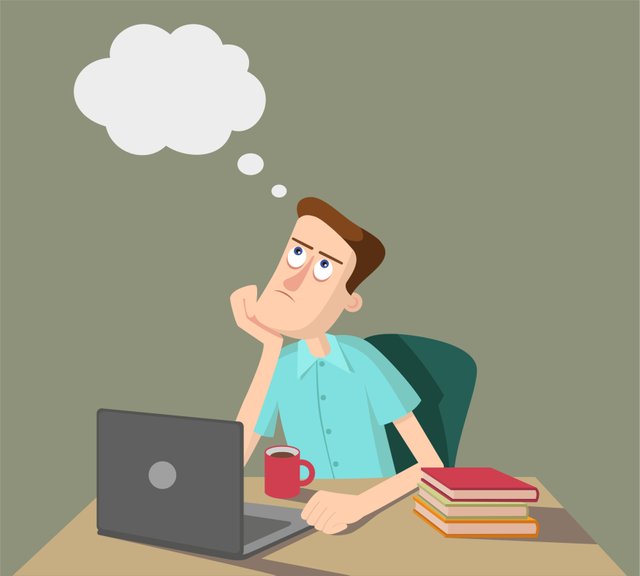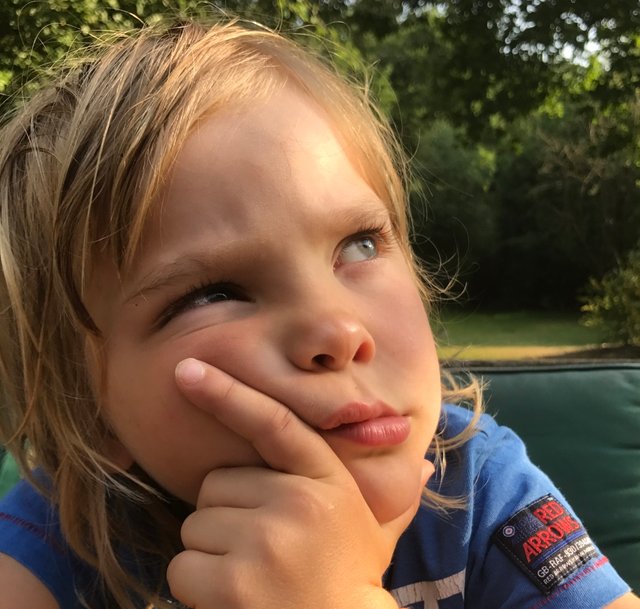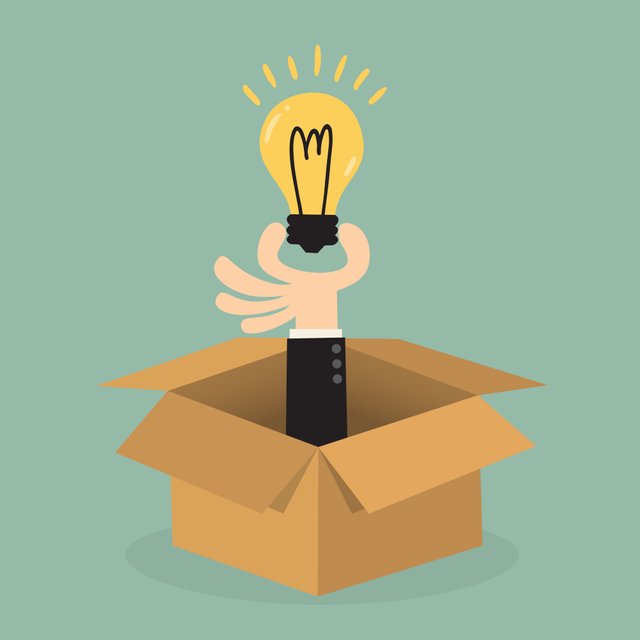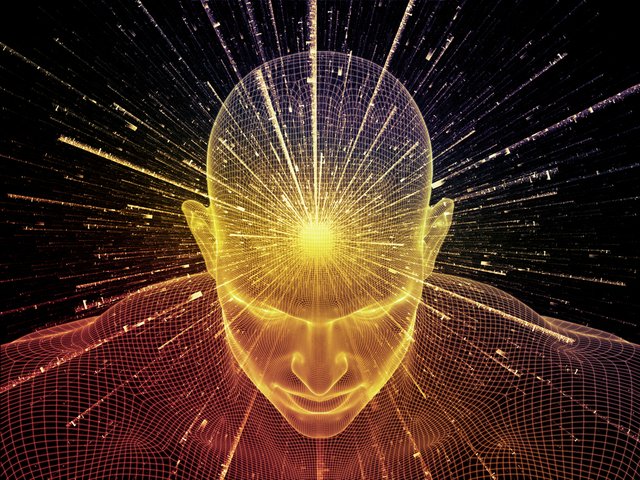
Most people consider their own mental processes to be what thinking is, without ever considering the nature of the activity and without ever questioning the effectiveness of their particular methods. Modern schooling practices discourage critical thinking by their very nature (e.g. multiple choice testing) and leave young people without this most crucial of acquired life skills. Much of the mental activity most people indulge in is counterproductive and unworthy of the term ‘thinking’.
At my website www.lawfulrebel.com, we consider thinking the most important thing that people can do. We advocate questioning assumptions and thinking outside the box. A degree of thinking about thinking is necessary. This post is the first step in addressing what thinking is, what it is not, some common misconceptions about it, and how to do it more effectively. Let's begin the discussion with a look at why it is so important.
Because it defines us as human
It is our capacity for thinking that defines us as human. It sets us apart from the higher animals, plants and all other living organisms. Specifically, it is our capacity for conceptual thought, or to conceptualise. This means our ability to discern similarities and differences between real life things and create mental categories in our mind. This is the essence of concept formation and the process of abstraction. Abstraction means to take out. Our uniquely human ability to extract or take out the similarities of things and form a concept - and the label we give to the mental grouping - sets us up to acquire an unlimited amount of knowledge about reality. Our potential for knowledge massively exceeds the capability of animals because we can see similarities and difference in concepts themselves, as well as specific concretes, or specific things.
Interestingly most people shy away from the word abstraction or the idea of conceptualising, perhaps considering it too intellectual, and yet we all use abstractions and concepts all the time. Every word in our language with the exception of proper nouns (names) represents a concept. It is our human capacity for language that represents our use of concepts in conceptual thinking. Every time we learn something new or come across a new word for something, our mind must perform an abstraction. As a child when you learned what a table was, you performed an abstraction - identifying the group of things with legs that are used to put things on, and then you learned the label for that concept was agreed to be 'table'.
It is because of our human capacity to think conceptually, and to use language as a means of verbalising our concepts that point to a definition of 'thinking' as being a specifically conceptual process, that is one involving words. It is only when our thoughts are put into words that they can be exposed to the scrutiny of reason using logic and therefore tested for their correlation with reality - whether or not they make sense!
It's our primary survival Tool
Thinking is our most important survival tool, whether in the wilderness or in modern high-tech urban living. Our survival depends on our ability to work out what to do. Like it or not, we humans have no innate knowledge. You cannot know what berries are poisonous and which are good for you. You have to figure out how to build a shelter and where to find water just as you have to figure out how to build a house, make money, socially interact etc.
It's our means of connecting with reality
Thinking is how we connect with reality, it is our primary cognitive tool. It couldn't get more essential than that. Most people are familiar with the idea that sanity is being 'in touch with reality.' The means of being in touch with reality is to accurately perceive it with our means of cognition - thinking through assimilated sensory data, or perceptions. It is a common mistake to assume that how we feel about something is also giving us accurate information about reality. This is not the case. How we feel about an objective situation or perceived circumstance of action depends upon all of our conclusions, and premises and previous assumptions, it depends upon our values. With a different set of values, two people can have entirely different emotional reactions to the same thing.

It makes rational values more likely
What we choose to value, what is important to us, is determined either by our thinking or by unconscious cultural download. The values we took on board as children are brought with us into adulthood too, and they can be questioned and revised at any time. Indeed they should be. The extent to which we think rationally and seek to know, the more rational our values will be, and as a consequence, our emotions are less likely to lead us a dance. Irrational values conflict and can be self-destructive. This leads to our emotions conflicting as well, which in turn leads to confusion, guilt, neurosis and suffering.
It's the only way to figure stuff out
Thinking is the way we figure things out and make sense of the world. This is a necessary step before establishing goals, values and strategies for achieving them. Thinking is the only way to achieve knowledge and therefore know what to do and how to live. What is knowledge? It is the identification of some aspect of reality and all knowledge falls into either of 2 categories. Self-evident knowledge is the given, perceived by our senses, and derived knowledge that is obtained by a process of inference. Which means examining evidence and reasoning to draw a conclusion. Almost all the convictions we hold that determine how we live our lives are in this second category, and acquiring this knowledge requires thinking.
It's the only route to effective Action
Thinking is the precursor to all effective action and behaviour. It is self-evident that whatever it is we are seeking to achieve, the chances of success are greatly improved by conscious consideration. Usually through a process involving planning, predicting, hypothesising, calculating, and reasoning to some degree. These are all achieved by thinking.
It facilitates a can-do attitude.
Thinking leads to a sense of self-efficacy (can do mindset) and therefore self-esteem because gaining knowledge increases our self-confidence. If we think and figure stuff out we are informed and we feel capable, able to live and therefore worthy to live. Our self-esteem is like a vessel that holds our capacity for happiness. In this way, our happiness (or unhappiness) indirectly depends upon our thinking or lack of thinking. The evasion of thinking, just like the evasion of anything that requires our attention, can never lead to a happy outcome.
It is the only way to discern truth from lies
Thinking is the only way to sort facts from fiction, truth from lies. This is arguably the greatest challenge facing humanity today. It is certainly the greatest challenge facing us as individuals living in the modern information/disinformation age! It's all out there, the accurate information that can help us to health and effectiveness in virtually any endeavour, along with the duff steers and the bullshit that can lead us to suffering. The only way we can discern between the two… is by thinking.
It is the only way to 'not be fooled' or conned
Thinking is the only way to not to be fooled by people trying to trick you or defraud you. It is widely agreed that being savvy and switched on is the way to go. It has never been considered cool to be ignorant! It is far less likely that any individual will be tricked or conned or persuaded into some scheme that does not serve them if they are thinking. A thinking man or woman is no fool.

Discoveries are made through thinking
Thinking is the only way to make discoveries, invent things and find better ways of doing things. How were the great discoveries in human history achieved? Was it by unthinking men? Was it through channeling or communion with the angels that Edison came up with the light bulb? Was it by meditation that the Wright brothers invented the aeroplane? Of course not. Every improvement in our quality of life, in our standard of living, and in the comfort of our lives was born out of thinking – specifically rational thinking.
It is the only way to plan
Thinking is the only way to plan, to define goals and values, and then to realise them. Anything we wish to accomplish in our lives, any ambition we wish to pursue, any dream we wish to realise, requires thinking. Yes, action is essential also, but the first step is thinking. Many have heard of the 5 P's - failing to plan is planning to fail. Think, plan and succeed!
It is what makes wealth creation possible
Thinking is the only way to create value and therefore make money and generate wealth. Any entrepreneur who has begun a great business endeavour has put in plenty of thought. The creation of wealth that serves everyone is only possible through thinking. What separates the employer from the employee is the amount of thinking they have done in creating and building the business. Productivity is at the heart of wealth creation, and this too self-evidently requires thinking. The idea for a product or service may come to many, but it will be realised by the one who thinks sufficiently to bring a process into being that delivers the idea to market.
It is the only way to health
One of the main reasons there is such an epidemic of ill-health in our culture is that we eat the wrong food and pursue counterproductive lifestyle choices. Both of these are the result of not thinking. For example; eating a diet to which the human genome is adapted requires thought and enquiry. It requires thinking for one's self in order to place one's own judgement over and above 'what everyone else does'. Following the crowd is action born of not thinking and in today's environment will not lead to health. Thinking, on the other, is exactly what is required to achieve health because there is much disinformation to unlearn. The same can be said for the whole collection of lifestyle choices that add up to either health or chronic disease. Evolution will reward those who think with good health. It is inevitable that sadly the unthinking will increasingly experience disease.
It is the only way to know what you are talking about
Thinking is the only way to know what you are talking about and to know what you are doing. Whenever we recount some information or some solution, whenever we report on some discovery or some idea, if we cannot explain it we do not understand it. A lack of understanding only means reveals a lack of thinking. It is thinking that enables understanding. It is through the process of thinking that we integrate ideas, facts and information into the sum of our knowledge. It is thinking that cross-pollinates one idea in our head with another. When the sum of our knowledge forms a non-contradictory whole by a process of thinking, we greatly improve the likelihood of knowing what we are talking about, and therefore what we are doing.
It is the route to independent living
Thinking is the key to independent living. When we are children we enjoy our dependence on parents, but few would seriously argue for dependent living. To be dependent is to need and to rely upon some other in order to function. Independence is often a matter of degree, and to some extent, we are all dependent upon at least some factors outside of our control. Yet the essence of independent living is sorting things out for our selves; it is being our own last resort; it is being capable to take care of ourselves exclusively through our own efforts and from our own resources. This doesn’t mean winding up the drawbridge and doing everything our selves, but it does mean thinking for our selves. Independence is a key component of self-esteem, and therefore an essential building block for our happiness.
Thinking enables an effective and happy life
Thinking is the only way to ensure an effective and happy life because it is what leads to considered action, and therefore the realising of goals, and therefore a sense of being in control of one's life and experiencing self-esteem. What happens in our life is the result of a constant stream of decisions and choices made by our mind. Our mind is what runs our life. Given that it is thinking that leads to the acquisition of knowledge and it is knowledge that informs those decisions, we can see that our mind must do some thinking if it is to make informed choices and decisions that will ensure outcomes in our self-interest. In short, our happiness depends largely on our inclination to think.
It's the number one prerequisite of freedom
Thinking is the only road leading to intellectual sovereignty which is the practice of thinking for one's self and holding one's own judgment as the highest authority in one's life. It is, therefore, a prerequisite of freedom. It would be a contradiction in terms to lay any claim to being free while relying on someone else or some other 'authority' for information about what choices to make or what to do - how to live. Without intellectual sovereignty, there can only be enslavement to the ideas of others. Freedom is expressed by being one's own highest authority. This is perhaps the most important reason to be a thinker - achieving freedom. Just as thinking is a function of the individual, so perhaps is freedom.

Thinking is the essence of 'conscious living'
In order to increase our awareness, we must increase our conceptual mental activity. Once the eyes are seeing and the ears are hearing, we have no ability to increase their ability to see or hear. We can only increase our attention to the sensory data. It is the same with all the senses, they cannot be turned up above 'full' on that imaginary dial of sensitivity. But Thinking is different. Lastly, I submit that without the practice of deliberate purposeful mental activity to figure things out, to weight up and make decisions about what can be improved.
Thinking can be turned up because of our uniquely human ability to conceptualise. To see those patterns and similarities and differences. Because it is possible to build concepts upon concepts by seeing patterns and similarities within concepts, this means we can build an unlimited amount of knowledge. We therefore also have an unlimited potential for conceptual awareness. I propose that this is the essence of becoming more conscious, more aware. The more patterns you can see in reality, the greater is our awareness. The only way to form these new concepts with increasing complexity is through deliberate and purposeful mental activity with knowledge as its goal - in other words, by thinking.
Be a thinker!
Nigel Howitt (Lawful Rebel)
November 2018
Congratulations @lawfulrebel! You received a personal award!
You can view your badges on your Steem Board and compare to others on the Steem Ranking
Vote for @Steemitboard as a witness to get one more award and increased upvotes!
Downvoting a post can decrease pending rewards and make it less visible. Common reasons:
Submit